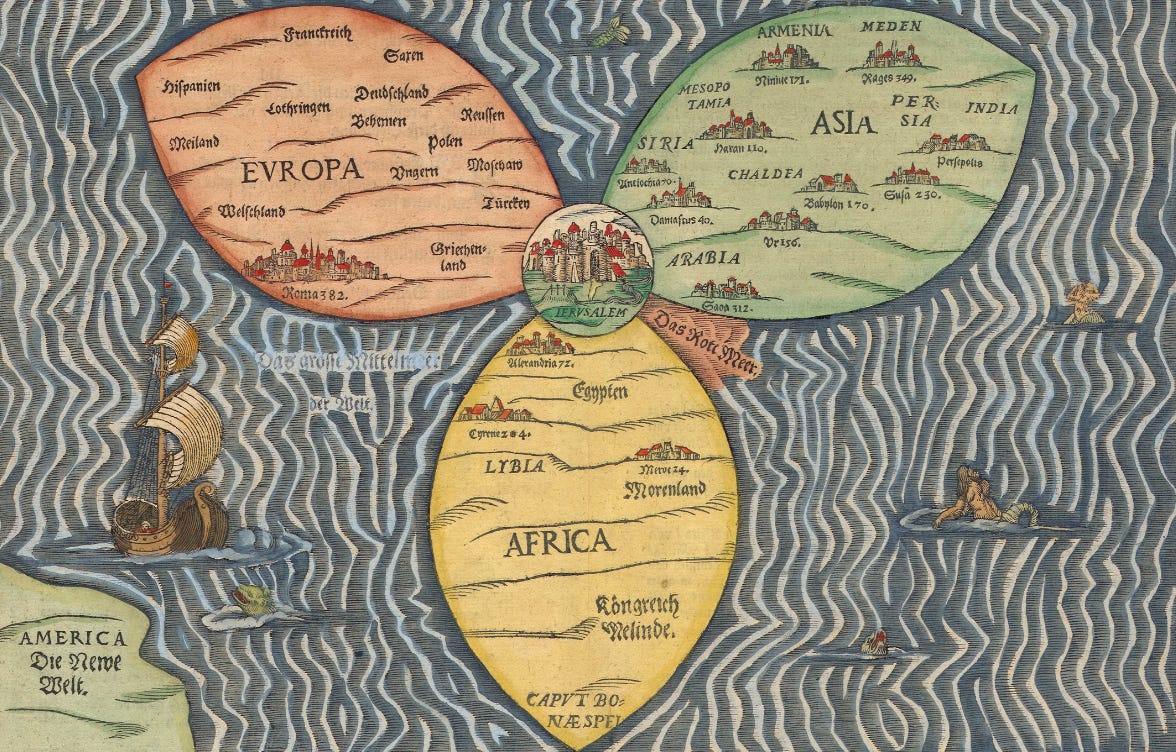Week signals: Navel gazing
Plus: watch points for the US, the UN, the EU, Turkey, and Cyprus.

Hello,
In this week’s edition of Week Signals:
IN REVIEW. Why we look at the navel of the world, Israel as a microcosm of global debate, and what the war in Gaza means for the international order.
UP AHEAD. The Senate dithers, the UN talks, the EU signs a trade deal, and the Eastern Mediterranean meets.
And don’t forget to connect with me on LinkedIn.
Week Signals is the Saturday note for clients of Geopolitical Strategy, also available to GD Professional subscribers on Geopolitical Dispatch.
The Week in Review: On a broken promised land
The week began with Marco Rubio visiting Jerusalem and Arab and Islamic leaders visiting Doha. It ended with the UN voting 145-5 to allow Palestinian President Mahmoud Abbas to address its annual high-level week by video, after the US denied him a visa for New York.
Despite a host of other key developments – strikes in France, state visits in Britain, and talks between the US and China – this week was mainly shaped by events concerning Israel. And as the upcoming UN leaders' summit portends, the coming week will be shaped by Israel as well.
How does a country with fewer than 10 million people (15, including the Palestinian territories) – fewer than Tajikistan and South Sudan, respectively – and a territory smaller than Belize (or, with Palestine, Lesotho, a country nobody has ever heard of) so dominate the news cycle? On almost every measure, whether GDP (less than Ireland), market cap (less than Norway) or even long-term defence spending (less than Australia), Israel wouldn’t normally be expected to receive so much focus. And while the war it is waging in Gaza is bloody, one-sided and upsetting, similarly bloody, one-sided and upsetting conflicts from Ukraine to the Congo fail to garner nearly as much attention.
But Israel, the holy land for three major faiths, and the crossroads of Africa, Asia and Europe, is different. And it always has been. From the Romans to the Crusades to how decolonisation began after the Second World War, Israel has been among the biggest producers of history per capita and in total ever since Moses crossed the Red Sea.
Described in Ezekiel 38:12 as the “navel of the world”, with Jerusalem’s Temple Mount considered by many religions to be the omphalos or axis mundi, it’s no wonder Israel has been fought over in words and deeds despite its semi-arid soil, lack of mineral resources, and few distinguishing natural features. Unlike Egypt with the Nile or Mesopotamia with the Tigris and Euphrates, the Jordan River, even at its pre-industrial rates, had a flow of less than the Thames.
Yet beyond its psychological and spiritual grip on geopolitics, does Israel really warrant the ongoing attention of business and investors? Why does it matter, and why, despite more fundamentalists than fundamentals, will it continue to feature so centrally in the years and centuries ahead?


